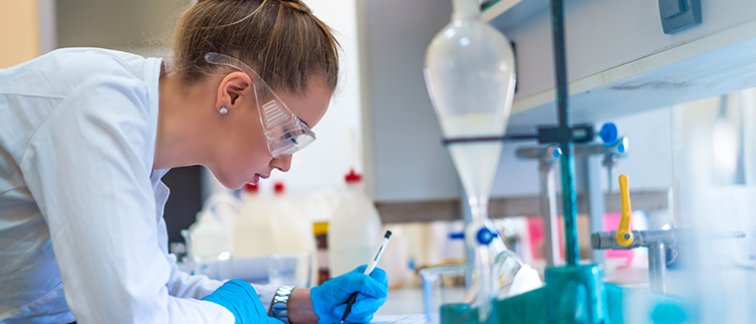The Dutch Cancer Society (KWF Kankerbestrijding) has announced an investment of €
26 million in 31 cancer research projects in the Netherlands. Three research projects at Cancer Center Amsterdam will receive a total of almost € 3 million. Congratulations to PIs Imke Bartelink, Arnon Kater, and Dorien Maas!
Imke Bartelink: Mechanistic tumor-penetration models in primary and metastatic brain tumors for individualized tyrosine kinase inhibitor selection and dosing. (€ 1,279,198.64)
Tyrosine kinase inhibitors (TKIs), such as osimertinib and tucatinib, are specifically given to patients who have a mutation in the epidermal growth factor receptor (EGFR) or HER2 activation. However, not all patients with a brain tumor respond to TKI-directed therapy. Most TKIs cannot cross the blood-brain barrier or are actively pumped out of the brain. At Amsterdam UMC, we use minimal amounts of radioactively labeled TKIs in Positron Emission Tomography (PET/CT) to show how TKIs are distributed in the body and in the tumor (pharmacokinetic (PK) research). Leakage of the BBB and of the tumor tissue can be made visible with specific MR sequences that are standardly made at diagnosis. By combining PET/CT and MRI, the uptake of the drug within the tumor and the accessibility of the BBB to the drug in patients with primary and secondary brain tumors can be determined. We expect that based on a model based on imaging techniques, we can predict the therapeutic TKI uptake variability and individualize TKI selection and dosages.
Arnon Kater:T-celtherapie in CLL. (€ 883,730.50)
Chronic lymphocytic leukemia (CLL) is incurable. There is a great need for new treatment modalities. With two new techniques, patients' own defense cells (T-cells) can recognize and kill cancer cells: CAR T-cell therapy, where T-cells are genetically modified outside the patient, and bi-specific antibodies that bind to the T-cell on one side and the tumor cell on the other. These therapies are very successful in aggressive leukemia but hardly effective in CLL because the interaction with CLL cells makes the T-cells dysfunctional due to inadequate activation via the TCR-CD3 complex. We have discovered that T-cells can also be activated in an alternative way. We now want to use this finding to develop effective T-cell therapy. The goal of this project is to develop and select at least one antibody and CAR construct with enough potential for a phase 1 clinical study.
Dorien Maas: Combining clinical and preclinical methods to successfully treat chemotherapy-related cognitive impairments successfully. (€ 801,686.50)
Cognitive disorders are a side effect of chemotherapy that can persist long after the treatment is completed and include problems with working memory and concentration. There is no successful treatment strategy for chemotherapy-related cognitive disorders (CRCI) because clinical and preclinical studies are far apart, creating translational problems in the development of treatments. In the brains of CRCI patients, the harmful effects of chemotherapy are not localized in a specific brain area but rather the 'connectivity' or connection between brain areas is affected. This research uses a rat model for CRCI. Using this model, the cellular and molecular changes underlying CRCI are investigated, and different interventions to remedy CRCI are examined.
For more information, contact Cancer Center Amsterdam or read the press release from Dutch Cancer Society (KWF).

Follow Cancer Center Amsterdam on LinkedIn & Twitter / X.

